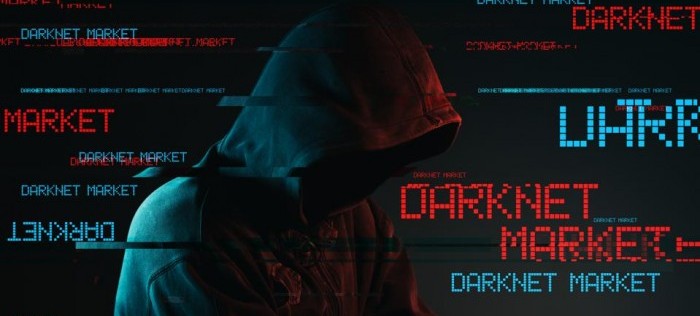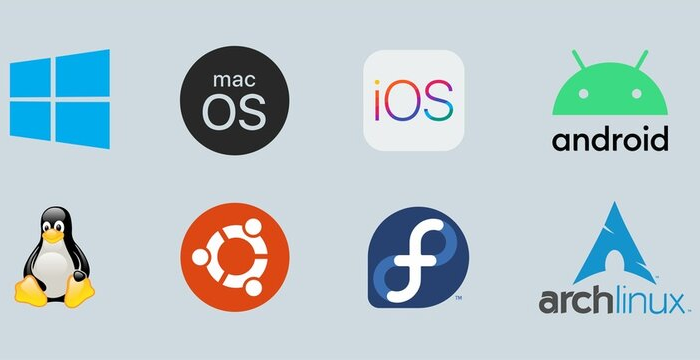What is Dark Web?
What is the Dark Web?
The Dark Web specifically refers to websites that exist behind multiple layers of encryption and cannot be found using traditional search engines or visited using traditional web browsers. Almost all of the so-called Its sites hide their identity using the Tor encryption tool. You may know Tor for its ability to hide your identity and activity. You can use Tor to spoof your location so that it looks like you’re in a different country than where you really are, like when you’re using a VPN service. When a website goes through Tor, it has much the same effect.
Indeed, it multiplies the effect. To visit a site on the Dark Web that uses Tor encryption, you must be using Tor. Just as your IP address is sent back through multiple layers of encryption to appear to be at another IP address on the Tor network, so is the website. Simply put, there is a lot more secrecy than the already secret act of using Tor to visit a website on the open Internet – for both parties.
Thus, sites on the Dark Web can be visited by anyone, but it is very difficult to determine who is behind the sites. And it can be dangerous if you make a mistake and your identity is discovered. Click here to download Free RAM Free Antivirus
Click here to download Free RAM Free Antivirus
What is there on Dark Web
The Dark Web is home to all kinds of information, but it has gained a bad reputation due to the prevalence of widespread illicit content such as illicit pornography, black market drugs, illegal gun sales, etc. the illegally acquired user database, etc. illegal content makes the dark web a suitable place for criminals. However, it is not just for criminals; journalists can use it to gather information from sources without risking their identity, whistleblowers can use it to expose corporate and government corruption, etc.
Dark web browser
All this activity, this vision of a bustling market, might make you think browsing the dark web is easy. This is not the case. The place is as messy and chaotic as one would expect when everyone is anonymous and a substantial minority is looking to rip off others.
Accessing the dark web requires the use of an anonymous browser called Tor. Tor Browser routes your requests for web pages through a series of proxy servers run by thousands of volunteers around the world, making your IP address unidentifiable and untraceable. Tor works like magic, but the result is an experience that resembles the dark web itself: unpredictable, unreliable, and extremely slow.
Dark web search engine
Dark web search engines do exist, but even the best are challenged to keep up with the ever-changing landscape. The experience is reminiscent of web research in the late 1990s. Even one of the best search engines, called Grams, returns repetitive and often unrelated results. Linklists like The Hidden Wiki are another option, but even indexes also return a frustrating number of expired connections and 404 errors.
Dark web sites
Dark websites look pretty much like any other site, but there are some important differences. One is the naming structure. Instead of ending with .com or .co, dark websites end with .onion. It is a “special-purpose top-level domain suffix for an anonymous hidden service accessible through the Tor network,” according to Wikipedia. Browsers with the correct proxy can access these sites, but others cannot.
How Does the Dark Web Work?
The Tor network is one of the biggest and most well-known darknets, and that’s what most people refer to when discussing the dark web. Tor – short for “The Onion Router” – bounces information through a series of encrypted layers (like an onion) that gives users more anonymity. There are onion sites and services on the Tor network, and page addresses end in .onion. To access the dark web, you can download and install the free Tor browser. (You can also use it to browse the surface and the deep web.) It’s perfectly legal, and the US government is a major backer of Project Tor, which creates the browser.
But having access to the browser is only the first step. Unlike the surface web, there are no great search engines for the dark web. You may have to find the address of a site on the onion yourself, and the names are not easy to remember. For example, the CIA’s onion address is ciadotgov4sjwlzihbbgxnqg3xiyrg7so2r2o3lt5wz5ypk4sxyjstad.onion, and the nonprofit ProPublica newsroom is propub3r6espa33w.onion.
Deep web vs. dark web: What’s the difference?
The terms “deep web” and “dark web” are sometimes used interchangeably, but they are not the same. The Deep Web refers to anything on the Internet that is not indexed and, therefore, accessible through a search engine like Google. Deep web content includes anything behind a paywall or requiring login credentials. It also includes any content that its owners have blocked from crawler indexing.
Medical records, paid content, member websites, and confidential corporate web pages are just a few examples of what constitutes the deep web. Estimates place the size of the Deep Web between 96% and 99% of the Internet. Only a tiny portion of the Internet can access through a standard web browser, commonly known as the “Clear Web”.
The dark web is a subset of the deep that is intentionally hidden, requiring a specific browser – Tor – to access it, as explained below. No one really knows the size of the dark web, but most estimates place it at around 5% of the total internet. Again, not all of the Dark Web is being use for illicit purposes despite its ominous name.
How to safely access Dark Web
Accessing the Dark Web requires specialized software with built-in peer-to-peer networking support in addition to other browser features. Currently, there are two software programs that support them – Tor and I2P. These are web browsers with additional tools to encrypt web traffic for added security. It is possible to access the and its anonymous thanks to these software. In addition, the virtual private network (VPN) service adds another layer of security here. However, these software do not offer any foolproof protection and one should be careful when accessing the dark web. As a best practice, it is mentioned so as not to reveal a true identity on the DW. In addition, banking and other financial services should not be used through such software.
How to Protect Yourself From the Dark Web
The dark web is not inherently bad, illegal, or dangerous. Whistleblowers, journalists, activists and law enforcement use the dark web to collect and share information without revealing their identities. And around the world, users may want to use Tor or the to escape government censorship and surveillance.
However, if you are a victim of identity theft or affect by a data breach, your information could sold on the DW. There are steps you can take to protect yourself and stay ahead of identity thieves.
- Be careful while browsing this web. If you choose to browse dw, be aware that you don’t know where a .onion address will take you. You could unintentionally end up on a site that tries to install malware on your device.
- Use unique passwords for your accounts. If your account information is stolen, it is only dangerous if an identity thief can actually use it. Creating unique passwords for all of your online accounts can help limit the impact of a single data breach. If you believe your account information has been compromise, change your password immediately.
- Update your passwords. Changing your passwords regularly, even when there are no threats, can also make your account information less useful. A password manager can help you create and store strong passwords, and can even perform regular security checks for you.
- Register for This Watch. It is a monitoring service that will search the for your information and notify you if it finds anything. The warning will let you know what information is compromise and give you the opportunity to take action to secure your identity and accounts.
- Lock or freeze your credit reports. Locking or freezing your credit reports can prevent someone from opening an account in your name, even if they have your personal information.
This article covers the answers to some of your frequently asked questions:
People May Also Like…
Operating System (OS) security
Securing Operating System: Protecting Digital Environments In the rapidly changing world of technology, operating system (OS) security is a vital line of defence against online attacks. Operating system security is the first line of defence
Data protection
What is the data protection Data protection has grown to be of utmost importance to both individuals and organizations in the connected. world of today, where information travels quickly across many digital
What is a security software
Security software It is impossible to overstate the value of strong security software in today's digital world. Individuals and organizations must take proactive measures to safeguard their sensitive data and defend against
Website reputation analysis
Website reputation analysis Websites are incredibly important for establishing an online presence for businesses, organizations, and people in the modern world. Analysis and evaluation of a website's reputation are crucial because there are








